Are you having a tough time remembering all the long answers before your exam? Do you blank out during an important test?
We’ve all been through that as a student, and it is normal to have moments of forgetfulness. Fortunately, there are some fun and easy scientifically proven ways to improve your memory.
Why Improve Memory?
Having a good memory is highly important, especially during important phases in your student life. A good memory can decrease your stress levels, improve your career and make test-taking easier.
Imagine if you woke up one day with 50% of your memory lost! Wouldn’t life become difficult? Imagine the opposite now: what if you woke up one fine morning and you could easily remember everything you read, saw and heard? We both agree that life will be so much easier if that truly happens.
Having a good memory will help you be more spontaneous and creative, thus, helping you in having a successful career.
Let’s not wait for that fine day, instead, check out these tried and tested techniques for better memory, before your exam day.
Click here to understand the lives of different professionals and make an informed decision
1. Structure & Organise
Several researchers have emphasised on the importance of structuring your ideas, which leads to better memory. Information is organised in your memory in related clusters. So, organising your thoughts and material will be an advantage.
| Pro tip: Try grouping similar concepts and terms together or make an outline of your notes and textbook readings to help group related concepts. |
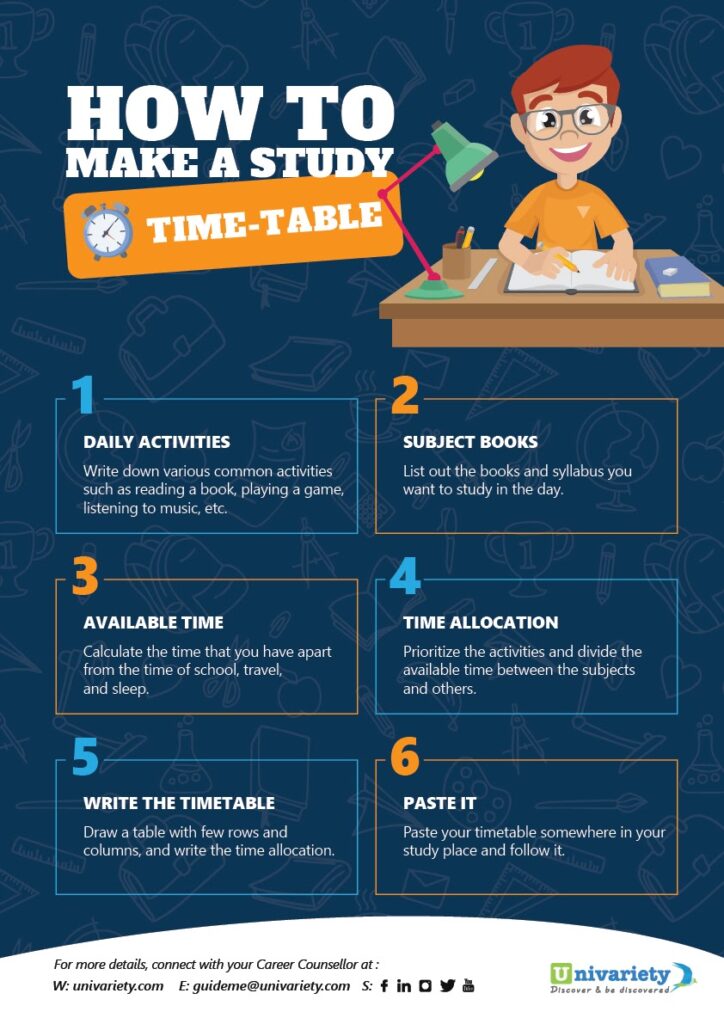
2. Use Mnemonic Devices
A mnemonic is a fun and easy way to remember anything. Many students often use it to remember important details in history or difficult chemical equations. These devices are very old, with some dating back to ancient Greek times.
Most people use them, even if they don’t know the name. It’s simply a way of memorising information so that it stays within our brain for longer and can be recalled more easily in the future.
| Pro tip: Try creating a rhyme or a song to remember a specific segment of information. |
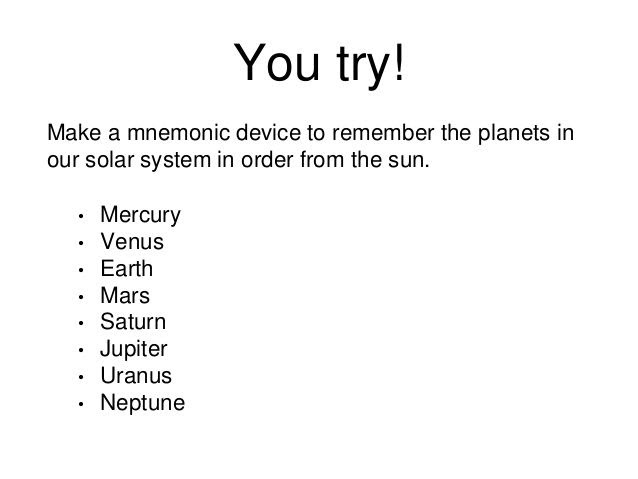
3. Read Out Loud
Researchers have found that reading material out loud and explaining it to other friends is an effective way of learning a subject. According to research, the act of reading and speaking text aloud is a more effective way to remember information than reading it silently.
The dual effect of both speaking and hearing helps encode the memory more strongly. It significantly helps improve your memory. This is where your group studies help you.

4. Visualise Concepts
Visualising the information you read helps you in remembering the material for longer. Look at reference photographs, charts, and diagrams in your textbooks. If you don’t have visual cues, you can create your own.
| Pro tip: Draw charts or figures in the margins of your notes or use highlighters or pens in different colors to group related ideas in your written study materials. |
5. Create Mind Maps
Mind Maps are a great way for you to make notes on all of the information that’s out there for you to remember. If you’re wondering how to note a ton of facts and figures that are being told to you, create a mind map.
They will help you make a realistic plan for your essay, and create a logical structure for the introduction, main sections, and conclusions. It focuses your mind on the message you want to get across and the key information you want to include.
| Pro tip: Note down only the most important information using keywords, and then make connections between facts and ideas visually – keeping all of your thoughts together on one sheet |
6. Break Information Into Smaller Chunks
Mind maps are related to this. Break down every answer into small pieces of information with subheads and categories. That will help you remember things, while also being systematic and organised.
7. Focus Your Attention
One of the major components of memory is attention. For you to remember any piece of information for longer, you need to actively attend to this information.
| Pro tip: Try to study in a place free of distractions such as television, music, and other diversions. Set aside a short period of time to be alone. |
Stressed About Making the Right Decisions? Sign up for a counselling Session Now!
8 Avoid Cramming
Studying a lot of subjects and material in a marathon session is not a good idea. Many students opt for this method as they begin revising and prepping for their exam only a few days before it begins.
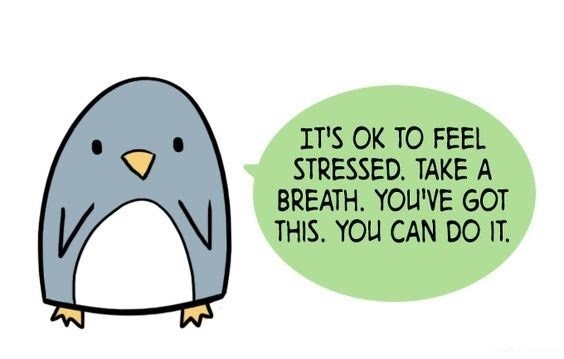
However, research has proved that students who study regularly remember the material far better than those who do all of their studying in one go.
| Pro-tip: Make a time-table and plan well in advance. |
9 Meditate
There is no doubt that meditation positively affects your health and memory in many ways. It is relaxing and also reduces stress and improves memory. A study demonstrated that Taiwanese college students who engaged in meditation practices like mindfulness had significantly better working memory than those who did not practice it.

Even on the day of the exam, you can wake up and spend about 15 minutes to meditate to feel relaxed.
10 Get Enough Sleep
No matter how much emphasis is laid on sleeping for a good amount of time, it’s never enough. Students often end up spending the nights before the exams revising and thus, getting very little sleep.
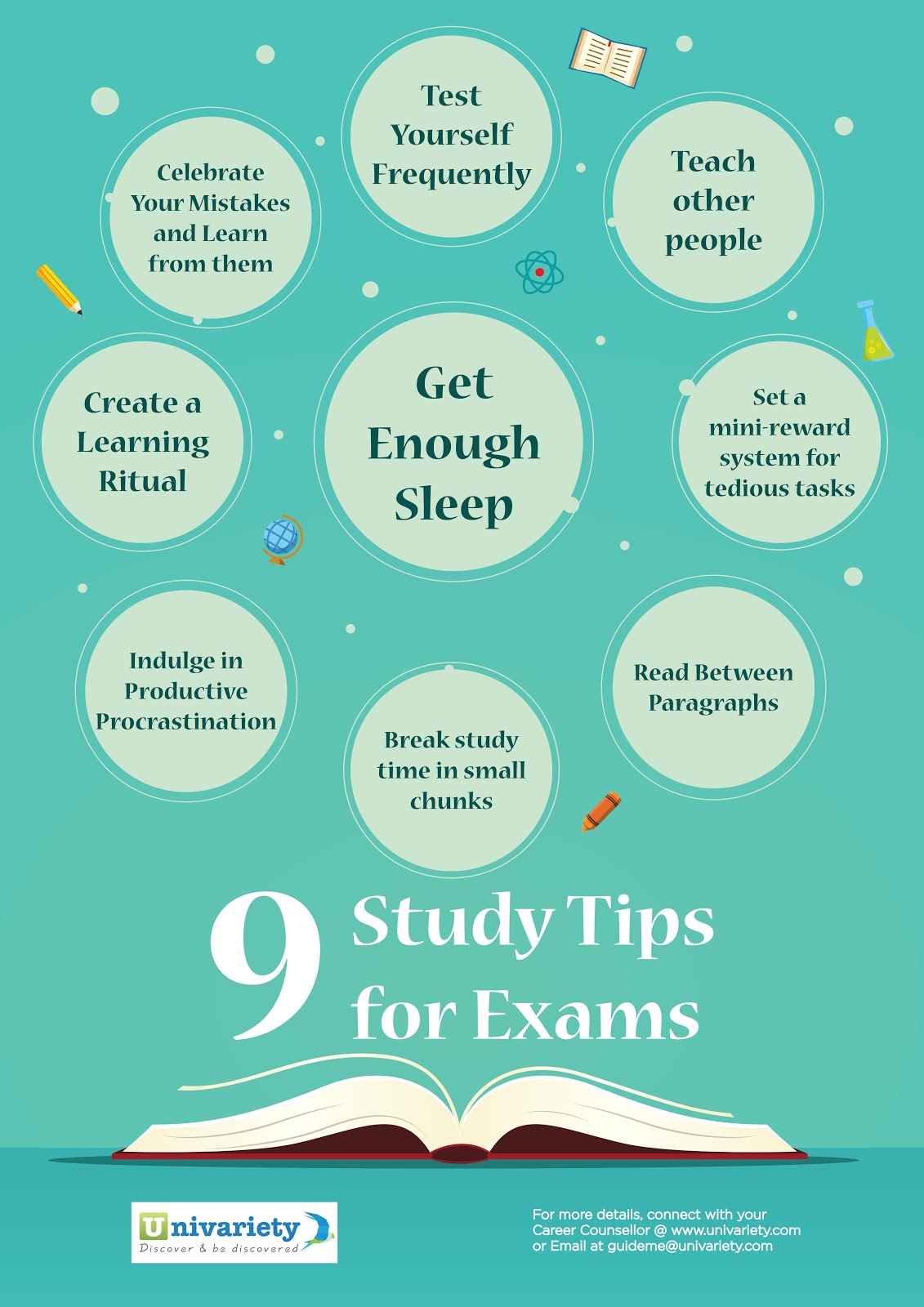
Research has shown that taking a nap after you learnt something new can actually help you remember better. That apart, it also helps you stay calm and composed.
Improving your memory will make you more attentive and focussed, thus helping you make informed decisions about your life, especially your career. As a high school student, choosing the right career path may be stressful or confusing. Psychometric tests will help you understand your interests and make a wise decision.
Click Here to Explore more Career Guidance Tools
When Harini Prasad is not busy researching about top trends in education and learning techniques for students, you will find her writing about all things fashion, travel, cinema, and music. A millennial poster-child, Harini is a former lifestyle journalist with specialisation in child rights, gender, and new media journalism. Currently, she is busy exploring the world of marketing and content creation.


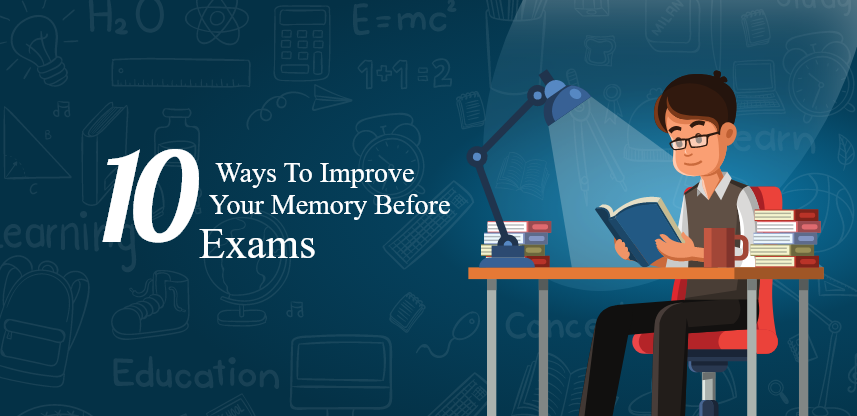
4 Comments
Really usefull points are given ……. had a good experience in studying these 10 points …. i will try to follow it in my daily routine
Thank you so much! I didn’t even know what mnemonic means before. Now I’m going to read about this technique for sure.
The more you learn, the more you can remember. At least that’s how it works for me. It’s also very helpful to take notes – if I’m writing something down, I remember it better.
We always enjoy your articles its inspired a lot by reading your articles day by day. So please accept my thanks and congrats for success of your latest series.
Hi Satyadeva
Thank you for your lovely response. It keeps us motivated to do better. subscribe to our email newsfeed for more updates. You can also check out our website for more info on India’s Best Career Guidance System